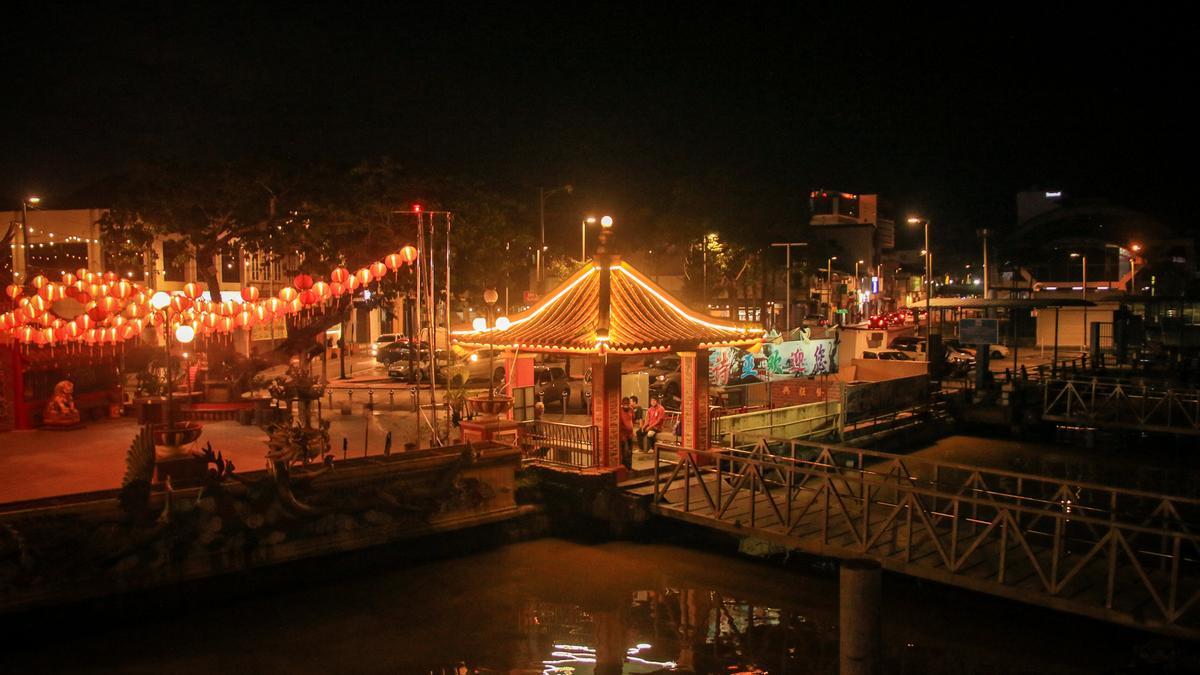
London, Paris, and Bangkok are iconic tourist destinations that also serve as bustling capital cities, often gracing the top of travel checklists. These cities provide travelers with one essential takeaway: bragging rights. However, venturing beyond these popular capitals reveals a world where crowds are sparse, commodities are cheaper, and curated experiences give way to authentic encounters. In Malaysia’s context, Kuala Lumpur may attract the lion’s share of tourists, but a glance across the South China Sea to the city of Sibu on Borneo Island can be far more rewarding.
The Rejang River, one of Malaysia’s most significant waterways, flows majestically through Sibu, offering visitors the chance to embark on serene boating excursions. Borneo itself, the third-largest island in the world after Greenland and New Guinea, has a fascinating history. Once under the rule of the Sultan of Brunei until the 18th century, the end of colonial rule saw the island split into Indonesia’s Kalimantan State and Malaysia’s Sabah and Sarawak States, with Sibu falling under the jurisdiction of Sarawak.
Recent travel developments have made Sibu more accessible than ever. Scoot, a subsidiary of Singapore Airlines, launched direct flights from Singapore to Sibu on June 5, offering thrice-weekly non-stop services. Stepping out of Sibu Airport, visitors are met with a sense of déjà vu; the lush greenery evokes landscapes reminiscent of many South Indian states. Sarawak, characterized by its tropical rainforests, is mirrored in Sibu’s verdant topography.
Yet, the differences between Sibu and more crowded destinations are unmistakable. With a low population density, the city provides ample breathing space, featuring relaxed roads dotted with large pickup trucks and small-capacity scooters. The motorists here are laid-back, adhering to traffic lights with patience and seldom resorting to honking. Business establishments often welcome patrons with spacious parking areas, reminiscent of scenes from Hollywood movies.
Sarawak is Malaysia’s largest state and is primarily home to ethnic tribes and Malays.
. Sibu is unique within this context, boasting a significant Fuzhou Chinese population that migrated to the area in search of work. This cultural diversity is reflected in Sibu’s cuisine, which is an enticing blend of flavors. Laksa, a noodle soup with meat and coconut milk, traces its origins to China, while Midin, a jungle fern cooked in fish broth, is distinctive to Sarawak.
Interestingly, Sibu’s culinary traditions resonate with those of India as well. In the native Iban longhouses — elevated structures that extend backwards — visitors are often greeted with welcome snacks that closely resemble Tamil Nadu’s paniyaaram and Kerala’s achappam, known locally as Kuih Rose. The night market in Sibu further immerses visitors in the local food culture, offering a variety of meat dishes, dumplings, fresh-cut fruits, and locally-made alcohol.
Sibu’s Central Market is a vibrant hub during the day, where travelers can purchase raw meats and vegetables to try their hand at preparing traditional dishes. One of the culinary traditions intrinsic to Sibu includes Mee Sua, a type of thin wheat noodle. Several local families have been in the business of hand-making these noodles for generations, and visiting their enterprises offers insight into the craft. Watching a pile of dough transform into thin strands of noodles is a mesmerizing experience.
The city also offers numerous other attractions, ensuring that visitors seeking authentic experiences find happiness in every corner. Boating along the Rejang River, exploring the bustling night market, and witnessing the meticulous preparation of traditional hand-made noodles are just a few ways to soak in the spirit of Sibu.
Ultimately, if losing oneself in a sea of tourists is not a priority, and discovering something genuine takes precedence, Sibu emerges as a haven for such travelers. This quaint city on Borneo Island promises more than just a visit; it offers a journey into a world of unique traditions, diverse cuisines, and serene landscapes. If one values the joy of unearthing something new over simply ticking off a checklist, Sibu is the place to be.












